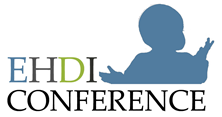| Presenter Information: |
| Presenter 1: |
Name: Lisa Satterfield
Affiliation: Department of Health Care Services, California
Lisa Satterfield received her M.S. in Audiology from the University of Southern Mississippi in 1994. In 2006, she joined the California Newborn Hearing Screening Program and California Children’s Services as a consultant, following a varied career in hospital pediatric audiology, private practice, and university instruction and research. She is committed to ensuring appropriate diagnosis and treatment of children with hearing loss, and is thankful for the great team in California supporting this goal.
|
|
| Abstract Information: |
| Title: |
California’s Cochlear Implant Program for Children: Trends from the EHDI Program |
| Primary Track: |
2-Audiological Assessment and Intervention
|
| Keyword(s): |
cochlear implant, early identification |
Abstract: |
Cochlear implants have been a benefit of California Children’s Services (CCS), California’s Title V Children with Special Health Care Needs program within the Department of Health Care Services, since 1996. With the inception of the Newborn Hearing Screening Program (NHSP) in 2000, an upward trend in the number of cochlear implant surgeries has been anecdotally reported by the Department’s “Centers of Excellence” for cochlear implants. In addition to the increase of surgeries performed, there is a noted decrease in the age of implantation and the age of consideration for cochlear implant candidacy. In response, the cochlear implant authorization process has expanded since 1996 to include new policies further defining cochlear implant candidacy criteria. For the long-term care of the implant, policy has also been developed addressing replacement speech processors and having the cochlear implant batteries and replacement parts supplied directly to the patient by the cochlear implant manufacturers. This presentation will give an overview of building a comprehensive, state-managed cochlear implant benefits program and the policies that direct candidacy criteria. Additional elements of the California program that influence the quality of care will be shared: a Technical Advisory Committee used for policy development and continued consultation, the authorization of Service Code Groups for cochlear implant evaluations and follow-up services, and the review for candidacy at the state level to ensure appropriate referrals and the education of providers not familiar with current cochlear implant standard of care. Finally, referral and authorization data available from 2002 to present will be presented, identifying trends in age of referral and implantation. The age of the child at surgery and the increase in the number of surgeries will be examined to determine the relationship between early identification through the NHSP and early intervention through the use of cochlear implants. |
| Presentation(s): |
Not Available
|
| Handouts: |
Not Available
|
|

